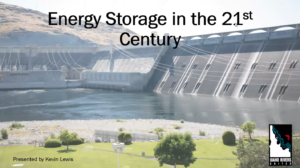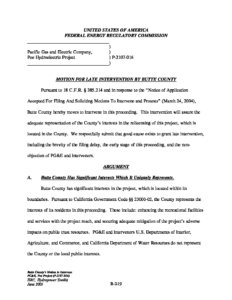Court Victory for California Water Quality and Rivers – and CSPA
On August 4, 2022, a panel of judges from the U.S. Court of Appeals for the Ninth Circuit overruled the Federal Energy Regulatory Commission (FERC), re-establishing California’s right to protect water quality in the Yuba, Bear, and Merced River watersheds for the next 40 years.
Barring successful appeal, the ruling ends a three-year chapter in CSPA’s hydropower advocacy, one of many protracted detours initiated by an industry that regularly complains how long hydropower licensing takes. For every time the hydropower industry evaluates how to reasonably protect fish and other resources, it uses legal and procedural gambits to argue that those fish and resources are someone else’s problem. It is an established part of a business model.
The immediate actors in these consolidated cases were Yuba County Water Agency, Nevada Irrigation District, and Merced Irrigation District. But they were widely supported by the hydropower industry, including an amicus brief in support those actors from the National Hydropower Association (240 members) and the Northwest Hydroelectric Association (135 members). They were also supported by consultants who specialize in hydropower, one of whom explained to a group of licensing participants, including CSPA, something on the order of: “Well, we’ll just see what FERC says.” Baloney. It was not that innocent.
As part of the licensing process, Section 401 of the Clean Water Act requires license applicants to also request that the state (or in some cases, a tribe) certify that the new licenses will protect water quality as required by state law. The Clean Water Act gives states a year to “act” on certification. In the three cases, the applicants withdrew their requests for certification before one year expired.
FERC found that the California State Water Resources Control Board’s acceptance of the applicants’ withdrawals and some perfunctory procedural emails showed that the state had “coordinated” circumvention of the one-year rule. Relying on a 2019 case called Hoopa Valley Tribe v. FERC, FERC thus held that the State Water Board “waived” its chance to certify the projects on the Yuba and Merced rivers.
The Court disagreed. Writing for the panel, Judge Michelle Friedland wrote:
We agree with the Fourth Circuit’s observation in NCDEQ [a similar case in North Carolina] that “it must take more than routine informational emails to show coordination” because the states’ “rights and responsibilities to ensure compliance with their own water quality standards are too important to be so easily stripped away.” [Citation]. Because the default term of a federal license is forty years, a state’s waiver could result in a hydroelectric project’s being noncompliant with a state’s standards for decades. Considering those dramatic consequences, FERC’s coordination findings cannot rest on such thin evidence as a simple courtesy email reminding an applicant of an impending deadline.
The Court thus ruled FERC’s decision invalid because it was not supported by “substantial evidence.” The Court’s characterization of FERC’s evidence as “thin” is, in CSPA’s view, charitable.
FERC had also said that the applicants’ failure to complete environmental review as required by the California Environmental Quality Act (CEQA) didn’t matter. Again, the court disagreed, stating, “In short, the records in all three orders under review demonstrate that the Project Applicants chose to withdraw and resubmit their certification requests because they had not complied with California’s CEQA regulations.”
The applicants flaunted the rules, and then they tried to skate. The ruling restores process discipline and affirms the overriding rights of states and jurisdictional tribes to protect water quality.
In addition to CSPA, South Yuba River Citizens League, Friends of the River, and the Sierra Club and its Mother Lode and Tehipite chapters were environmental litigants in the case, Water Power Law Group and the Western Environmental Law Center represented the environmental litigants. They coordinated their case with the California Attorney General’s Office, appearing on behalf of the State Water Board.
The cases are No. 20-72432, No. 20-72452, and No. 20-72782.


